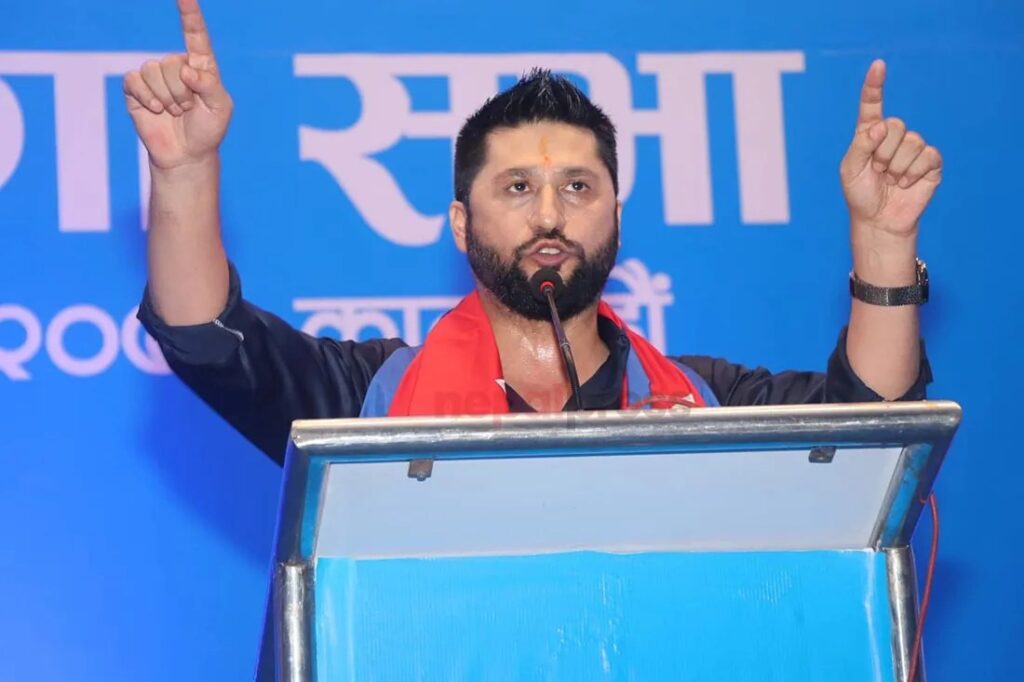By Nirmal P. Acharya
On January 27 the Supreme Court issued its final ruling, finding the Deputy Prime Minister and Home Minister Rabi Lamichhane, guilty of violating citizenship laws. The constitutional bench of the Supreme Court ruled that his candidacy and election to the post of a member of the House of Representatives are void, wrecking the big political gains he had made in a short period.
The ease with which, Lamichhane, once an American citizen who swore his allegiance to the US, has risen to such a high level of political status and power in Nepal is startling. Even after he relinquished his US citizenship in 2018, he did not apply to reclaim his Nepali citizenship as Nepal does not allow dual citizenship. Therefore, he improperly contested the election because of his invalid citizenship.
Just within seven months after its formation, the newly formed Rashtriya Swatantra Party led by Lamichhane rose to become the fourth largest political party in the federal parliament securing 20 members in the House of Representatives and four ministerial portfolios including Deputy Prime Minister and Home Minister. How did it come to this?
Is the US planning to send Prime Ministers and Presidents instead of ambassadors to other countries now? I would almost assume, if the US had such a plan, Nepal would have been chosen as a pilot country. The evidence of how Lamichhane was easily made Deputy Prime Minister and Home Minister, literally one step away from becoming Prime Minister is startling.
Will there be more NRN, holding foreign citizenships, going to be nominated for the respected post of ministers, prime ministers or presidents of Nepal in the future? Is Nepal on the verge of becoming the 51st state of the US? There are already Alaska, Hawaii, etc., far from the mainland of the US. Why not add Nepal? I can’t help but wonder.
With the ongoing political scenario, the possibility of Nepal becoming the 51st state of the US appears stronger. If Nepal can become the 51st state, the rule that the MCC program is not subject to the government of Nepal and not subject to the laws of Nepal will be justified.
Reproduced from People’s Review weekly




